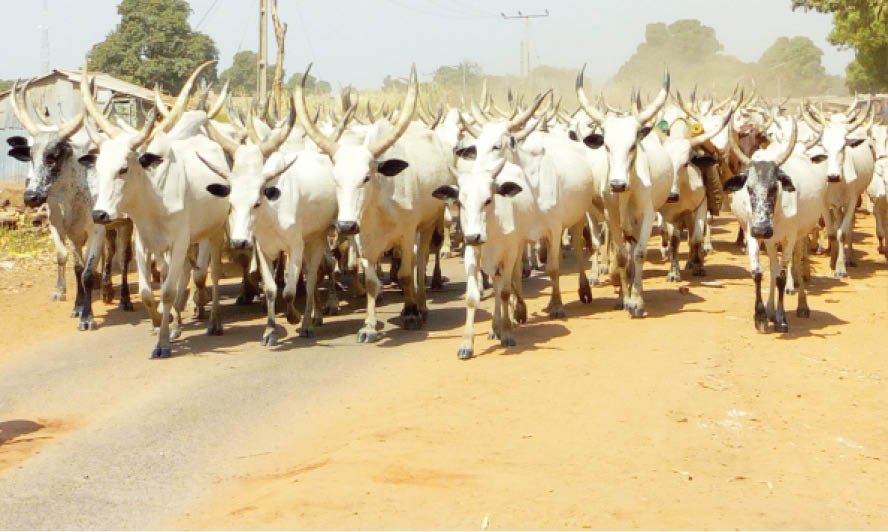The Senate, on Tuesday, considered bill that seeks to control the movement of livestock across the country, curb incessant cattle rustling and conflicts between herders and farmers.
The bill, which seeks to establish National Livestock (Protection, Control and Management) Bureau, passed Second Reading on the floor of the Senate.
- Chadian military picks Idriss Deby’s son as his replacement
- FLASHBACK: How Late Chadian President Led His Men To Capture Boko Haram Fighters In Sambisa
The piece of legislation, according to its sponsor, Senator Bima, Muhammad Enagi (Niger South), was to safeguard our national livestock and sanitize the livestock industry.
The lawmaker, in his lead debate, said the movement of livestock and their products has increased the spread of diseases, increased the threat to human health and reduced consumer confidence in animal products.
He said the Bureau when established will ensure the traceability of animal products into the country, in order to safeguard the lives of our people.
The listed the benefits of the Bill to include creation of a National Livestock Identification Data base; ensure management, traceability, and control of movement of livestock; ensure livestock health and disease management through disease surveillance, prevention and quick response to disease outbreaks.
Others are: food safety through the traceability of animal products; enhance transparency and information in the food chain; deter animal theft, especially as it affects the incessant cattle rustling crisis; aid intelligence gathering by security agencies towards mitigating the incessant conflicts between herders and farmers.
He said: “With the vast livestock resources available and proper use of experts, it can be exploited to transform the livelihood of millions of farmers and other stakeholder in the livestock value chain.
“In the long run, an enabling law will sanitize the sector, reduce communal conflicts and herders-farmers clashes, enhance foreign exchange earnings, give the desired boost to the on-going agricultural renaissance that the present administration is passionate about.”

 Join Daily Trust WhatsApp Community For Quick Access To News and Happenings Around You.
Join Daily Trust WhatsApp Community For Quick Access To News and Happenings Around You.

